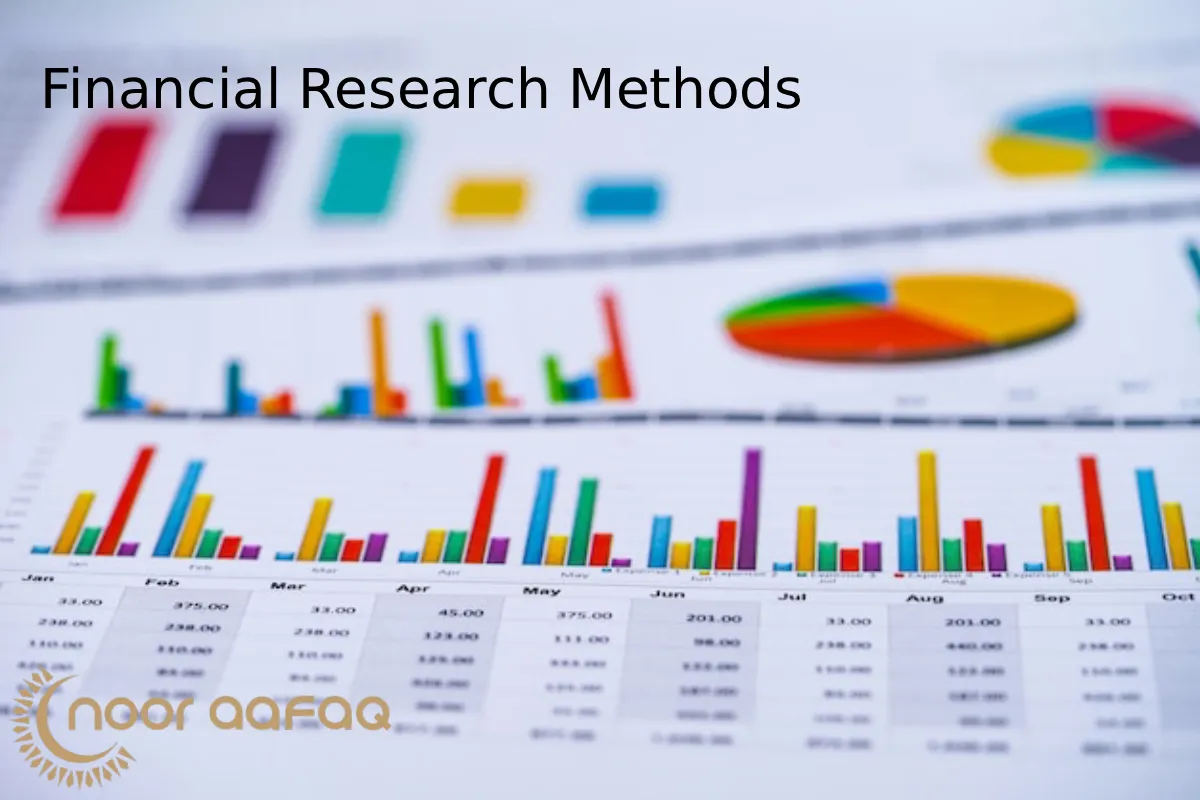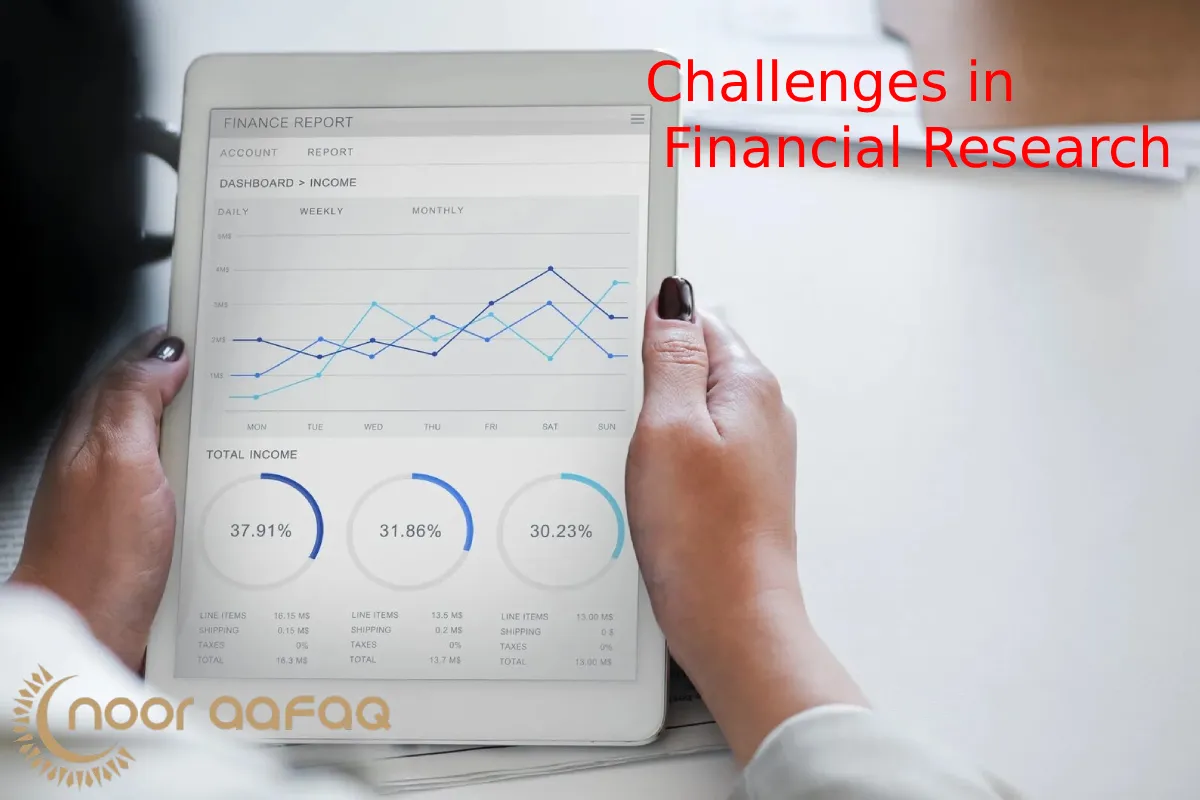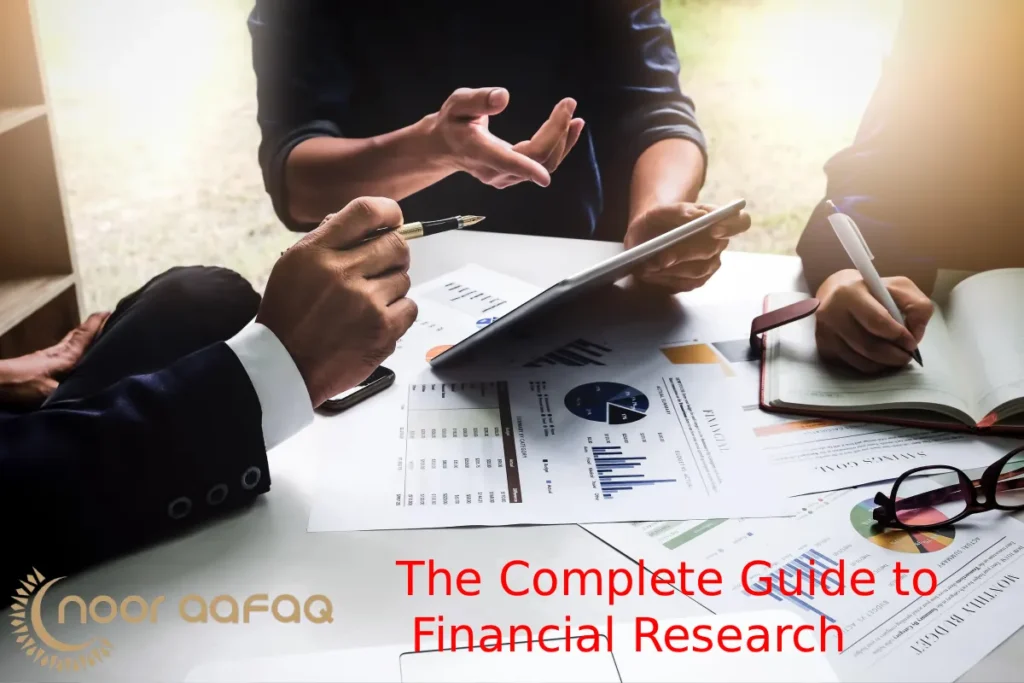Financial research isn’t just for analysts in suits crunching numbers on Wall Street it’s actually something that quietly influences many of the money decisions we make every day, from investing and budgeting to understanding where a company truly stands behind all the glossy reports.
Noora Afaq offers resources designed to help individuals and businesses grow with confidence and clarity.
Types of Financial Research
Before diving into the how-to, it’s important to understand the types of financial research you might use. Each type serves a specific purpose and helps answer different kinds of questions.
Fundamental Research
This is the kind of research that digs deep. It’s about looking at financial statements, company performance, management strategy, and the broader economic environment. The goal is to understand the actual value of a company or asset. If you’re analyzing a stock or thinking about investing in a business, this kind of financial research helps you make informed decisions.
Technical Research
You know how some people focus on figuring out when prices might change? That’s the core of technical research. Instead of digging into company reports or economic news, it’s all about studying charts, spotting trends, tracking volume shifts, and recognizing patterns. Traders use it to decide the best times to buy or sell, but even if you’re not trading constantly, understanding these signals can be valuable. It’s a bit like reading the market’s mood, not predicting its life story.
Quantitative Research
This method blends numbers with strategy. It’s used to build models, test assumptions, and simulate different financial scenarios. You might use it to forecast next year’s cash flow or analyze risk. It’s common in big firms, but thanks to modern financial tools, even smaller teams are using it now. This kind of research takes raw data and turns it into actionable insights.

Financial Research Methods
Once you know what type of research you need, the next step is figuring out how to do it properly. A solid method ensures your results are trustworthy and usable.
Data Collection Techniques
Great financial research starts with solid data. This can include income statements, annual reports, market statistics, or even news updates. The key is to make sure your data is current, relevant, and coming from credible sources. Collecting the wrong data or outdated info can send you in the wrong direction fast.
Analyzing Financial Data
Here’s where it starts getting kinda real. you’ve got all this data, but now what? You gotta dig in. Maybe it’s crunching some ratios, maybe it’s just looking at how things are now compared to last quarter, or even seeing how you’re stacking up against the competition. The thing is, solid financial research isn’t just staring at numbers. It’s more like making those numbers talk. Context matters.
Research Tools and Software
Thanks to today’s tech, you don’t need to be a financial genius to do research. There are tools out there that simplify everything from budgeting to investment analysis. Cloud-based accounting platforms, financial dashboards, and spreadsheet templates can all help. Even simple software can give you the confidence to explore your numbers more deeply.
At Noora Afaq, we believe financial research should be accessible to everyone. That’s why we encourage using intuitive tools and strategies that help individuals and businesses make smarter decisions without feeling overwhelmed.
How to Conduct Financial Research
Now that you know the types and methods, let’s talk about doing financial research in practice. This is where theory meets action.
Defining Research Objectives
Every effective research project begins with a clear goal. Are you trying to value a company? Compare two investment options? Forecast future performance? Defining your objective early helps you focus only on the relevant data and avoid wasting time on noise. Without a clear direction, even the best tools and data won’t lead to useful results.
Selecting Reliable Sources
Not all financial information is created equal. Relying on poor-quality data can be worse than guessing. Good research uses trustworthy, up-to-date, and verified sources. This might include official company reports, certified databases, and reputable financial publications.
At Noora Afaq, we always emphasize the importance of starting with clean, credible data, because even the smartest analysis won’t fix flawed information. Think of your data as the foundation; everything else is built on top of it.
Preparing Financial Reports
Once your research is done, the next step is presenting your findings in a way that’s easy to understand. A good financial report tells a story. It doesn’t just show numbers it explains what they mean, why they matter, and what actions should be taken next.
Whether you’re reporting to stakeholders, pitching to investors, or planning next year’s budget, the clarity of your report is crucial. Use charts, summaries, and plain language. Make your insights easy to follow. This is where great financial research becomes truly impactful.
Importance of Financial Research
Ever wonder why people bother with all this analysis and number crunching? It’s not just busywork; financial research is what turns random guesses into solid decisions. Without digging into the data, you’re basically flying blind.
Enhancing Investment Decisions
If you’re putting your money into something or handling someone else’s, you don’t want to rely on gut feelings. That’s where financial research steps in. It lets you look past the noise and actually see what’s worth the risk. Whether it’s spotting a solid deal or steering clear of something shady, you’ve got facts backing you up, not just hype.
Reducing Financial Risks
Uncertainty is a part of any financial landscape. But with strong research, you can minimize surprises. Whether it’s spotting early signs of trouble in your business or preparing for market shifts, good financial research helps you see what’s coming and prepare ahead.
Identifying Market Opportunities
The best opportunities are often hidden in plain sight. Maybe a competitor is losing ground. Maybe a new trend is rising. Maybe your costs are climbing faster than you thought. Financial research helps you catch these signals before they become problems or before your competition does.

Challenges in Financial Research
Despite its value, financial research isn’t always easy. Knowing what to look for is one thing; finding it and trusting it is another.
Lack of Accurate Data
Sometimes the biggest challenge is simply finding good data. Private companies may not share enough information. Government stats can be outdated. And even published data can contain errors. Always verify your sources and cross-check facts when possible.
Complexity of Financial Analysis
Understanding financial data can be overwhelming. Ratios, reports, trends, it’s a lot. Especially for those without a financial background. That’s why tools and guidance matter so much. At Noora Afaq, we specialize in turning complex information into practical steps so you can stop guessing and start planning.
Rapid Market Changes
Markets change fast. What was true yesterday might be irrelevant today. Good financial research doesn’t just look backward, it prepares for what’s next. Staying updated and flexible is key to staying competitive.
Conclusion
Money choices today aren’t just about luck. they’re about knowing what you’re doing. That’s why learning financial research matters. It’s not just for analysts or big companies. It helps anyone, business owners, investors, or everyday people, make clearer, smarter moves.
At Noora Afaq, we’re all about turning confusing financial stuff into something simple and practical. We want you to feel confident using financial research in your life. Because once you understand the story behind your numbers, your decisions get stronger and your future brighter.
FAQs
- What is financial research, and why is it important?
It helps you make smarter money decisions by turning raw numbers into real insights. - What are the main types of financial research?
You’ve got fundamental, technical, and quantitative, each digging into finance from a different angle. - Which tools are used in financial data analysis?
From simple spreadsheets to pro-level platforms, there’s a tool for every skill level. - How can financial research improve investment decisions?
It clears the fog so you’re not just guessing you’re acting on solid facts. - What are the biggest challenges in conducting financial research?
Finding accurate data and keeping up with market shifts can definitely be tricky.













